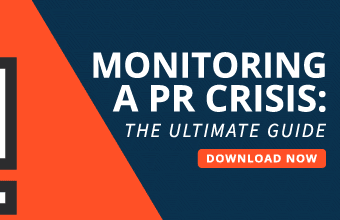There are a lot of different ways to handle PR crises, but one thing you definitely do not want to do is let it go—or make it go—from negative incident to catastrophe.
Here are two prominent examples of big PR scandals that ended up going from bad to worse:
Bridgestone
Back in 1998, Bridgestone tires began hearing how some of their tires were suddenly separating, causing horrifying accidents. For two years, the company sat on the information, then, in 2000, the NHTSA announced a massive investigation into the reports. When these headlines hit, a nation of drivers were terrified. Even if they didn’t have these kinds of tires, the driver next to them on the interstate could have them… Would they be next?
As those fears gripped drivers, Bridgestone had an opportunity to commit to doing better, to solving the problem, and, in so doing, calming these fears. Instead, the company offered a series of noncommittal public comments, going back and forth on its position until CBS News reported that 200 people had been killed by the tires and 700 more people had been injured.
At that point, Bridgestone had lost the ability to take the initiative and make the best of a terrible situation. After months of half-measures and unclear messaging, the company was made to look completely callous and unfeeling toward their consumer base. Americans were livid, and Bridgestone faced what would become a long road back into the good graces of the American driver. A much longer road than it could—or should—have been.
Philip Morris
Much has already been written about the public relations tactics used by so-called “Big Tobacco” to keep people smoking or to downplay concerns about the health impact of smoking. Both the federal government and lobbying groups worked overtime to shine a harsh light on the tobacco industry, and the cigarette manufacturers needed to find a silver lining somewhere in order to put their product in a better light.
To accomplish this, someone at Philip Morris decided it would be a good idea to cite a study arguing that the death of smokers in the Czech Republic had a “positive effect” on the finances of the Czech government. The study, apparently, was instigated by Philip Morris in response to the Czech government’s own study that determined the financial costs of smoking outweighed its benefits. Philip Morris’ study determined that the death of smokers actually resulted in a “net financial gain” for the country.
When that news hit the media, there was no way the company could spin headlines suggesting Philip Morris thought it was a good thing for its customers to die younger, rather than live older and sicker. The company tried to backpedal, canceling similar studies in other countries, but the die was cast, and Philip Morris was slapped with a public reputation the company is still fighting to overcome.








